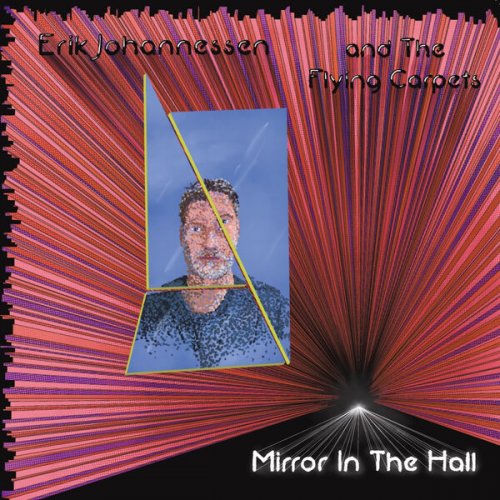Martha Argerich, Ivry Gitlis, London Sinfonietta - Beethoven, Haydn, Schumann, Franck, Debussy (2003)
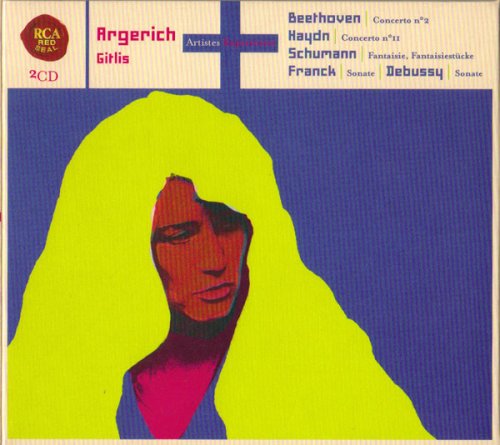
Artist: Martha Argerich, Ivry Gitlis, London Sinfonietta
Title: Beethoven, Haydn, Schumann, Franck, Debussy
Year Of Release: 2003
Label: BMG France
Genre: Classical
Quality: APE (image+.cue,log,scans)
Total Time: 74:06 + 64:16
Total Size: 662 Mb
WebSite: Album Preview
Tracklist: Title: Beethoven, Haydn, Schumann, Franck, Debussy
Year Of Release: 2003
Label: BMG France
Genre: Classical
Quality: APE (image+.cue,log,scans)
Total Time: 74:06 + 64:16
Total Size: 662 Mb
WebSite: Album Preview
CD 1:
Ludwig van Beethoven
Piano Concerto No. 2 in B flat major, Op. 19
[1] I/Allegro con brio [13'51]
[2] II/Adagio [9'28]
[3] III/Rondo : molto allegro [5'59]
Franz Joseph Haydn
Concerto pour piano et orchestre en re majeur, Hob. XVII-II
[4] I/Vivace [7'07]
[5] II/Un poco adagio [7'46]
[6] III/Rondo all'ungherese. Allegro assai [4'03]
Cesar Franck
Sonata for violin & piano in la majeur
[7] I/Allegretto ben moderato [5'58]
[8] II/Allegro [7'07]
[9] III/Recitativo : Fantasia (ben moderato) [7'04]
[10] IV/Allegretto pocco mosso [4'12]
CD 2:
Robert Schumann
Fantasie (Obolen auf Beethovens Monument) for piano in C major, Op. 17
[1] I/Durchaus fantastisch und liedenschaftlich vorzutragen Im lebhaften Tempo; Im Legendento ; Erstes Tempo [11'17]
[2] II/Massig : Durchaus energisch : Etaws langsamer ; viel bewegter [6'52]
[3] III/Langsam getragen. Durchweg leise zu halten ; Etwas bewegter [9'30]
Fantasiestücke (8 Fantasy Pieces), for piano, Op. 12
[4] I/Des Abends [3'25]
[5] II/Aufschwung [2'57]
[6] III/Warum? [2'04]
[7] IV/Grillen [2'56]
[8] V/In der Nacht [3'23]
[9] VI/Fabel [2'31]
[10] V/Traumeswirren [2'14]
[11] VI/Ende vom Lied [4'44]
Claude Debussy
Sonata for violin & piano, L. 140
[12] I/Allegro vivo [4'13]
[13] II/Intermede : Fantastique et leger [3'57]
[14] III/Final : Tres anime [3'42]
Performers:
Martha Argerich piano
Ivry Gitlis violin
London Sinfonietta (dir. Martha Argerich)
On the cover of this latest Red Seal twofer – I don’t much like using that word but I can’t really call this a double album any more – Martha Argerich takes top billing, rightly, to Ivry Gitlis, whose name is in smaller type underneath hers. Hence I’ve reproduced the two in the header of this review. But violinist manqué though I may be, how I wish I hadn’t had to.
Argerich likes to work with like-minded players – iconoclasts, individualists, free spirits and romantic expressivists, call them what you will. In this respect she has recorded with a violinist such as Ruggiero Ricci and cellist Mischa Maisky, both string players who can, on occasion, decidedly upset the horses. So much for them, but with Gitlis in these 1977 recordings I’m afraid we hit a brick wall. Of course I should preface these few remarks – I don’t want to upset the balance of the review – by saying that many will relish the chance to hear these 25-year-old performances of the Franck and Debussy Sonatas. Gitlis is an unbridled player whose Bartók, Bruch and Sibelius are connoisseur recordings (hear his Vox set for those). When I last heard him at the Wigmore Hall he had the Old World sensitivity to let his young pianist play some solos of her own – an unusual Old School gesture not much practised these days and all the more welcome for it. He played with considerable reserves of technique and style on that occasion. Here I’m afraid we have the most exhausting performance of the Franck I have ever heard. The vibrato is clotted and incessant, the romanticised gestures unremitting, highly personalised to the point of caricature, the hushed withdrawals of tone unconvincing and the rubato as predictable as a betting scandal on the racecourse. The whole espressivo intent is utterly misconceived, the tonal colour changes blatant and imposed. If the Franck Sonata was a turkey its neck would have been well and truly wrung after the first ten bars. Listen to Dubois/Maas or to Grumiaux/Hajdu. The Debussy, alas, is not much better. It is overwrought and full of the kind of caprice and melodrama that should be kept under check; gestures are too intense and massive, accents too heavy, the phrasing bordering on the gauche - the lavish tonal resources that Gitlis so effortlessly deploys are marvellous violinistically but ruinous musically. As for Argerich I am deeply impressed by her composure and understanding musicality; she is dignified and supportive without compromising her independence. This is especially true of the Franck, which is, in relative terms, technically easy for the violinist but on occasion crippling for the pianist. If reviews were a fair reflection of the players’ hard work then equal billing should be given to both musicians in this sonata and not lavished just on the fiddle player. It’s remarkable how seldom she follows him to the brink.
Her Schumann is often compelling but occasionally debatable. Her tone is unquestionably consistent in its beauty in the Fantasie (the occasional moments of hardening are a consequence of the recording). Yet for all the lavish beauty and the sensitivity, aren’t one or two of the agogics too obvious; doesn’t the movement in the end fail to be consequential? There are many impulsive and tremendously attractive moments – but perhaps, to me at least, that is the abiding problem: sectionality. The second movement is technically eloquent and emotively powerfully convincing. However, when it comes to the finale, climaxes are slightly fudged, for all Argerich’s power and sensitivity. Of the Fantasiestücke, Aufschwung is very breathless and fast, Fabel high-spirited and truly beautiful, Traumes-wirren a little quirky and Ende vom Lied noble without becoming arch. The recordings date from 1976 and sound attractive without being quite first class.
The most recent entrants are the two 1980 concerto performances she made, as director/pianist, with the London Sinfonietta. Of the two it’s the Haydn that is the more immediately appealing, not that the Beethoven is disappointing, with its lissom drive, rhythmic verve and incision in the outer movements and a penetrating stillness and beauty of tone in the slow movement with its superbly realised cadenza.
Given the problematic nature of some of the performances some care should be taken over this set of two discs. The remastering is unobtrusive but can’t convert a decent recording acoustic (the Schumann, say) into a great one. -- Jonathan Woolf
Argerich likes to work with like-minded players – iconoclasts, individualists, free spirits and romantic expressivists, call them what you will. In this respect she has recorded with a violinist such as Ruggiero Ricci and cellist Mischa Maisky, both string players who can, on occasion, decidedly upset the horses. So much for them, but with Gitlis in these 1977 recordings I’m afraid we hit a brick wall. Of course I should preface these few remarks – I don’t want to upset the balance of the review – by saying that many will relish the chance to hear these 25-year-old performances of the Franck and Debussy Sonatas. Gitlis is an unbridled player whose Bartók, Bruch and Sibelius are connoisseur recordings (hear his Vox set for those). When I last heard him at the Wigmore Hall he had the Old World sensitivity to let his young pianist play some solos of her own – an unusual Old School gesture not much practised these days and all the more welcome for it. He played with considerable reserves of technique and style on that occasion. Here I’m afraid we have the most exhausting performance of the Franck I have ever heard. The vibrato is clotted and incessant, the romanticised gestures unremitting, highly personalised to the point of caricature, the hushed withdrawals of tone unconvincing and the rubato as predictable as a betting scandal on the racecourse. The whole espressivo intent is utterly misconceived, the tonal colour changes blatant and imposed. If the Franck Sonata was a turkey its neck would have been well and truly wrung after the first ten bars. Listen to Dubois/Maas or to Grumiaux/Hajdu. The Debussy, alas, is not much better. It is overwrought and full of the kind of caprice and melodrama that should be kept under check; gestures are too intense and massive, accents too heavy, the phrasing bordering on the gauche - the lavish tonal resources that Gitlis so effortlessly deploys are marvellous violinistically but ruinous musically. As for Argerich I am deeply impressed by her composure and understanding musicality; she is dignified and supportive without compromising her independence. This is especially true of the Franck, which is, in relative terms, technically easy for the violinist but on occasion crippling for the pianist. If reviews were a fair reflection of the players’ hard work then equal billing should be given to both musicians in this sonata and not lavished just on the fiddle player. It’s remarkable how seldom she follows him to the brink.
Her Schumann is often compelling but occasionally debatable. Her tone is unquestionably consistent in its beauty in the Fantasie (the occasional moments of hardening are a consequence of the recording). Yet for all the lavish beauty and the sensitivity, aren’t one or two of the agogics too obvious; doesn’t the movement in the end fail to be consequential? There are many impulsive and tremendously attractive moments – but perhaps, to me at least, that is the abiding problem: sectionality. The second movement is technically eloquent and emotively powerfully convincing. However, when it comes to the finale, climaxes are slightly fudged, for all Argerich’s power and sensitivity. Of the Fantasiestücke, Aufschwung is very breathless and fast, Fabel high-spirited and truly beautiful, Traumes-wirren a little quirky and Ende vom Lied noble without becoming arch. The recordings date from 1976 and sound attractive without being quite first class.
The most recent entrants are the two 1980 concerto performances she made, as director/pianist, with the London Sinfonietta. Of the two it’s the Haydn that is the more immediately appealing, not that the Beethoven is disappointing, with its lissom drive, rhythmic verve and incision in the outer movements and a penetrating stillness and beauty of tone in the slow movement with its superbly realised cadenza.
Given the problematic nature of some of the performances some care should be taken over this set of two discs. The remastering is unobtrusive but can’t convert a decent recording acoustic (the Schumann, say) into a great one. -- Jonathan Woolf
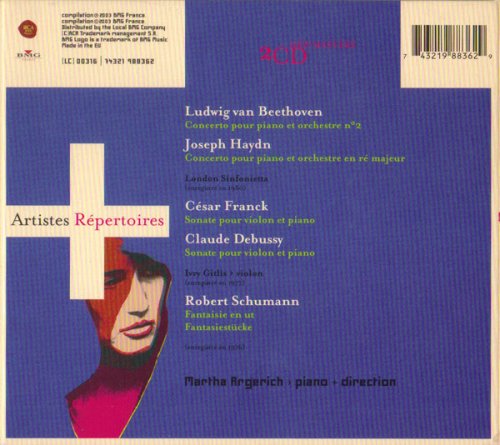
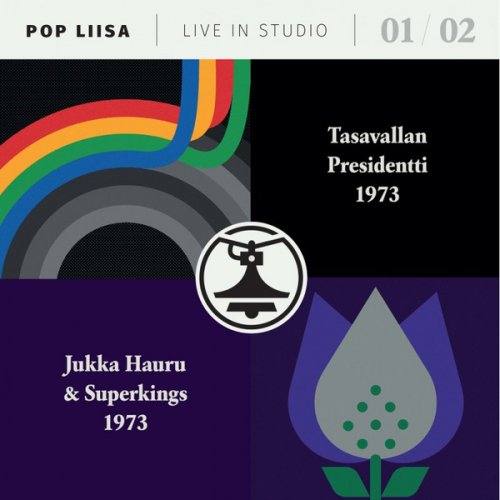
![Cannonball Adderley - Somethin' Else (1958) [2022 DSD256] Cannonball Adderley - Somethin' Else (1958) [2022 DSD256]](https://www.dibpic.com/uploads/posts/2026-02/1770877615_folder.jpg)

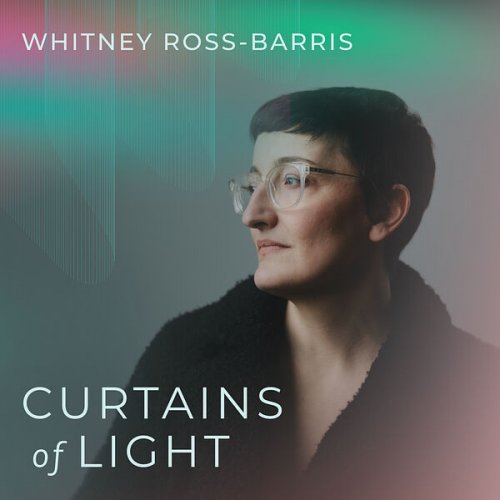
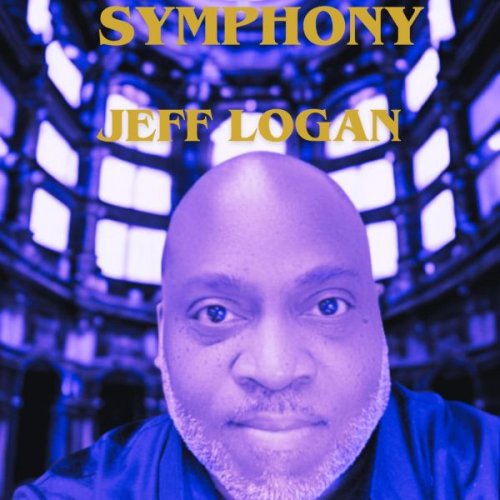
![Jon Henriksson, Pelle von Bülow, Rasmus Holm - Monkurt (2026) [Hi-Res] Jon Henriksson, Pelle von Bülow, Rasmus Holm - Monkurt (2026) [Hi-Res]](https://img.israbox.com/img/2026-02/15/ja2eavgnqk7dn4c3l9myzfk37.jpg)

![Bram de Looze, Felix Henkelhausen & Eric McPherson - Vice Versa II - Rebounce (2026) [Hi-Res] Bram de Looze, Felix Henkelhausen & Eric McPherson - Vice Versa II - Rebounce (2026) [Hi-Res]](https://www.dibpic.com/uploads/posts/2026-02/1770897660_n2f39vs6vb16a_600.jpg)
